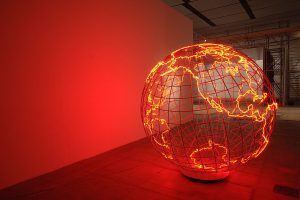George Abraham at The Paris Review:
 Palestine’s colonization doesn’t just take the form of checkpoints, walls, eradicated villages, testimonies from families with concrete barriers through their homes; it takes the form of an opulent city whose residents are convinced they live in the greatest city in the world. It was here, at this moment, when I began to realize the weight of what we lost, when I realized my memory of Palestine was a misappropriation of my displaced family’s lived experience, and no matter how much learning and unlearning I did, nothing would restore that original memory. Nothing would reconcile my experience of Palestine with my family’s collective memory. Nothing would resurrect the country this once was.
Palestine’s colonization doesn’t just take the form of checkpoints, walls, eradicated villages, testimonies from families with concrete barriers through their homes; it takes the form of an opulent city whose residents are convinced they live in the greatest city in the world. It was here, at this moment, when I began to realize the weight of what we lost, when I realized my memory of Palestine was a misappropriation of my displaced family’s lived experience, and no matter how much learning and unlearning I did, nothing would restore that original memory. Nothing would reconcile my experience of Palestine with my family’s collective memory. Nothing would resurrect the country this once was.
The liberated Palestine will not look like the Palestine that existed before it needed liberation. We must imagine it outside of its colonial reality. The land has gone from country to no man’s land to country once more. The streets are heavy with a language both new and familiar; the hillsides, reimagined, are empty of gazelles; the villages, unimagined, are swallowed in overgrowth. Would you believe that after all of this, I can see the land only through its postcolonial symbols? I don’t know how else to say this: There is always a hillside. There is always an animal, wandering or flying, and how easily a gazelle becomes a flock of eagles. Above all, there is always an ocean, a border, a wound festering from earth to blood-fed earth, from sea to shining sea.
more here.
